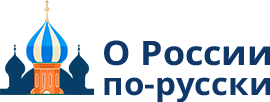-
Викторины
-
- ------
- Географический диктант
- ------
- Викторина по Петровским городам
- ------
- История и историк в цифровую эпоху: новые формы репрезентации прошлого и проблема объективности
- ------
- Методика преподавания истории Второй мировой войны в условиях дистанционного и смешанного обучения
- «В Урале Русь отражена»: начальная диагностика
- «В Урале Русь отражена»: итоговая диагностика
- ------
- Образ войны в коллективной памяти молодежи России и Европы
- The Image of a War in the collective memory of young people in Russia and Europe
- L'image de la guerre dans la mémoire collective des jeunes en Russie et en Europe
- Das Bild des Krieges im kollektiven Gedächtnis der Jugend in Russland und Europa
- ------
- Викторина "Россия – Германия: история и память"
- Quiz „Russland - Deutschland: Geschichte und Erinnerung“
-
-
Каталог
-
- == Олимпиады ==
- == Текущие конкурсы ==
-
Конкурс «По страницам произведений А.С. Пушкина»
-
- «Дух лицейских трубадуров»: в чем ценность стихотворений А.С. Пушкина о дружбе?
- Онегин vs Ленский: какой герой интересен вам в романе А.С. Пушкина и почему?
- Чем дорог нам «маленький человек» - художественное открытие А.С. Пушкина в «Повестях Белкина»
- Какое произведение А. С. Пушкина я считаю самым современным и почему?
- Многоликий Пушкин (по работам современных художников: И. Шаймарданов, Е. Двоскина, Р. Наливайко и др. – по выбору)
- «Поэзия, следи за пустяком» (А.С. Кушнер): пустяк и смысл в творчестве А.С. Пушкина
-
- Отправить работу на конкурс
- == Прошедшие конкурсы ==
-
Конкурс творческих работ «По страницам произведений В.П. Крапивина»
-
Фотоконкурс «Виват Россия», посвященный 350-летию со дня рождения Петра I
-
Конкурс методических разработок по русскому языку как иностранному
-
Конкурс «Россия и Польша - мосты дружбы и сохранение историко-культурного наследия»
-
Конкурс «История в биографиях» | Wettbewerbs „Geschichte in Biografien“
- == Сайты ==
-
Каталог сайтов
- == Учебные материалы ==
- Опубликовать материал
-
Русский язык
-
Литература
-
История
-
-
Квесты
-
Статьи
-
Ещё
-
- В Урале Русь отражена
- Обратная связь
- Памятные даты
- Наша группа ВКонтакте
- Мы на Одноклассниках
- Российская и германская молодежь в диалоге: история и память
- Лапта
- Мирный город
- Форум «Образ России в глобальном образовательном пространстве: язык, история, культура»
- Учимся понимать Россию
- Проект «Гражданское общество 2.0 – единство, ответственность, контроль»
-
- Главная

